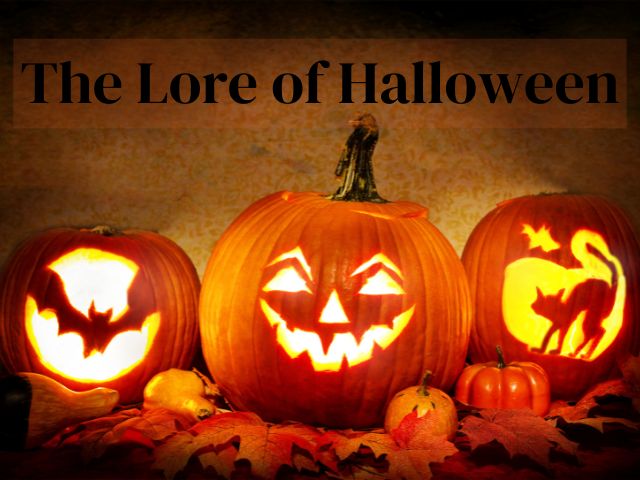(I originally published this post in 2022. I decided to publish it again, since it’s October. Happy Halloween!)
If someone asked me what day of the year I felt was associated with the most religious misconceptions, I would have to say October 31st. Happy Halloween! Let’s chat…….
The earliest mention of a festival taking place was a Celtic Festival.
We start this story when the Roman Empire had already taken a large portion of land from the Celts, while conquering Europe. Where they remained, and were able to preserve their culture, is what we now call Ireland, Scotland, and western England. This is where we see the first celebration of a festival that evolved into what we now call Halloween.
The Celts practiced, within their culture, a religion called Druidism and the church was the authority. The ancient Druids celebrated a religious festival called Samhain. It was a New Year’s Eve festival that honored Samhain, the Celtic lord of death, and they believed this god allowed the dead to return home, on this day, once a year.
The people in this area celebrated by extinguishing the fires in their fireplaces at home and a giant fire was built for them. Sacrifices were made, costumes were worn, fortunes were told, and everyone relit their home’s fireplaces the next day (New Year’s Day), on November 1st.
This festival continued even after the Roman Empire eventually succeeded in conquering what remained of the Celtic people’s land. The Romans changed the festival of Samhain by merging it with two different Roman festivals; the festival of Feralia, and the festival to honor a goddess called Pomona. The three become one festival. You can see the similarities because Feralia keeps with the Druid tradition of honoring the dead and Pomona, the goddess of trees and fruit, keeps with the Druids tradition of burning oak trees. Pomona adds the element of apples.
At this point, in history, we have costumes, bonfires, and apples a well-established tradition.
The next change we see to this festival, happens after Christianity becomes popular in the area. During the 800’s the Celtic people adopt All Saints Day, November 1st, and All Soul’s Day, on November 2nd, both Christian holidays. The Celtic people, once again being true to their culture, altered and continued with the traditional celebrations.
Halloween, at its root, has always been a religious holiday, evolving with which government ruled the church at that time. Every time a ruler takes over this area of the world, the name of the region’s religion changes, and the festival evolves, but the people keep the tradition alive.
Within the United States, settlers from Celtic regions brought this religious celebration with them. Unfortunately, people with different and stricter religious practices condemned the custom before learning it was religious in nature and Christian. Could you imagine dressing in costumes and standing in front of a bonfire in Salem, Massachusetts during the witch trials? They would have been found guilty of witchcraft for sure. Because of this, it was not until the 1800’s when we see the custom enter American culture, due to the increase in immigration from Scotland and Ireland.
Then, of course, actual problems have occurred. When I was a child, the biggest problems were houses being “egged” and/or “toilet papered.” We check our children’s candy to make sure it’s safe. As with any festival or celebration there will from time to time be troublemakers that spoil the fun. However, as far as actual evil or devil worshipping goes, that has never been historically accurate. Regardless of which religion people within the Celtic region were following, and what Christians in all regions were following, what we know today as Halloween, has always been traditionally a day to honor the dead; a day to remember those we have lost.
Halloween being deemed “evil” has always been and will always be propaganda created by people who did not want to learn about different customs and traditions. Something we always need to be mindful of when meeting people from cultures different than our own. It is most of the time not wrong, it is just different.
People choosing to celebrate, what we now call Halloween, have never done so because they have a lust for evil; the devil was never a part of the equation. This is a custom that survived thousands of years, changed religions multiple times, and crossed continents. In the United States it evolved even more into how we celebrate today. What do you think has kept it so popular? What about this tradition do you think appealed to people so much it has been kept through so many generations? What is your favorite thing about Halloween?


